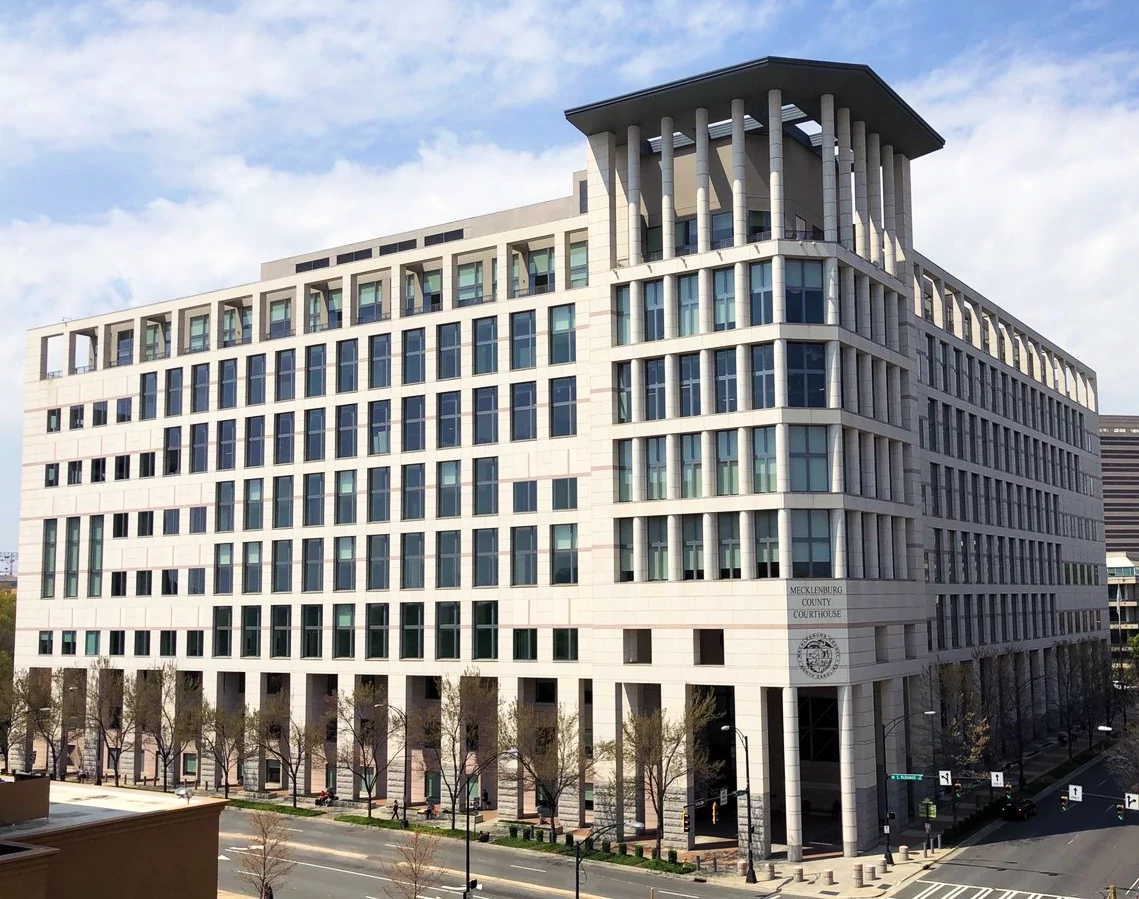
Forensic Evaluations Unit (FEU)
Conducts court-ordered psychological evaluations and diversionary screenings.
The Forensic Evaluations Unit (FEU) conducts court-ordered psychological evaluations and diversionary screenings to criminal justice-involved individuals across all levels of the county judicial system.
Evaluations
The Forensic Evaluations Unit provides scientific, ethical and legal forensic psychological evaluations, consultation, and other psychology-related services to the Courts to properly administer justice. The unit is involved with cases in Juvenile Court, District and Superior Criminal Courts, Clerk of Court-Special Proceeding Division, and conducts the following evaluations:
Parental Competency Evaluation (Rule 17)
Parent Focused Psychological Screening
Parent Focused Psychological Evaluation
Parenting Capacity Evaluation
Juvenile Capacity to Proceed
Juvenile Transfer to Superior Court Evaluation
Capacity to Proceed Screening Evaluation (District/Superior Court)

Diversion
The Criminal Justice Diversion Team redirects individuals with severe mental illness and developmental issues away from the criminal justice system and into appropriate mental health treatment and supportive services. The team is responsible for:
Court-ordered Mental Health Evaluations (MHE) with treatment recommendations and community resources.
Comprehensive Clinical Assessments (CCA) for entry into community services and placement upon release from custody.
Screening individuals in detention for diversion programs.
Coordinate release plans with the local Managed Care Organization (MCO) to assign appropriate services to clients.
Advocate for clients who cannot speak or act on their own behalf.
Specialized case management and assistance with obtaining/restarting disability benefits, arrange transportation, and/or completing a housing evaluation for individuals in custody.
Track individuals post-release to ensure they receive services and are stabile in the community.
Complete and submit SSI/SSDI disability applications for eligible individuals through our SOAR-Criminal Justice program
The Sequential Intercept Model
The Sequential Intercept Model (SIM) is a framework designed to identify key points, or "intercepts," within the criminal justice system where interventions can be made to divert individuals with mental health and substance use disorders away from incarceration and toward treatment and support services. By mapping out these intercepts, the SIM helps communities develop targeted strategies to improve outcomes for individuals at risk of entering or re-entering the justice system.
The model highlights six intercept points:
- Intercept 0: Community Services
- Intercept 1: Law Enforcement
- Intercept 2: Initial Detention/Initial Court Hearings
- Intercept 3: Jails/Courts
- Intercept 4: Reentry
- Intercept 5: Community Corrections/Community Support
Each intercept represents an opportunity for intervention and support, aiming to reduce recidivism, promote recovery, and enhance public safety. The SIM fosters collaboration among criminal justice, mental health, and community stakeholders to create a more effective and humane system.
Intercept 0 - Hospital, Crisis, Respite, Peer, & Community Services
988
Alliance Health - (1-877-223-4617)
Safe Alliance - (1- 980-771-4673)
Just 1 Call - (704-432-1111)
Smith Family Behavioral Health Urgent Care (BHUC)
Monarch Walk-in Clinic
Amara Wellness Walk-in Clinic
Promise Resource Network (PRN) (1-855-733-7762)
HopeWay
NCServes (1-800-273-8255)
Mecklenburg County Veterans Services
VA Charlotte Emergency Outpatient clinic
Community Policing Crisis Response Team (CPCRT)
Community Assistance: Respond, Engage, and Support (CARES) Team
Mobile Outreach Response Engagement Stabilization (MORES)
Atrium Health (Mercy Horizons)
Anuvia Detox
McLeod Centers For Wellbeing
NC 211
Coordinated Entry (CE) (704)284-9665
Queens City Harm Reduction
Substance Abuse Disorder Task Force
Mental Health America
National Alliance on Mental Illness (NAMI)
SMART Recovery
AA-NA (Alcoholics Anonymous and Narcotics Anonymous)
Salvation Army
Charlotte Bridge Home
PATH
Freedom Fighting Missionaries (FFM)
Charlotte Rescue Mission Shelter
Harvest Center
Re-entry Partners of Mecklenburg
Hearts for the Invisible Charlotte (HFTIC)
Intercept 1 - Law Enforcement & Emergency Services
Charlotte-Mecklenburg Police Department (CMPD)
Cornelius Police Department (CPD)
Davidson Police Department (DPD)
Huntersville Police Department (HPD)
Matthews Police Department (MPD)
Mint Hill Police Department (MHPD)
Pineville Police Department (PPD)
MEDIC Mecklenburg EMS
Atrium Health (Kings Mountain)
Atrium Health (Behavioral Health – Davidson)
W.G. (Bill) Hefner VA Medical Center
Atrium Health (Behavioral Health Charlotte – Outpatient Capacity Restoration)
Emergency Departments
Novant Health (Presbyterian Medical Center)
Atrium Health (Behavioral Health – Charlotte)
Queens City Harm Reduction
Substance Abuse Disorder Task Force
Mental Health America
National Alliance on Mental Illness (NAMI)
SMART Recovery
AA-NA (Alcoholics Anonymous and Narcotics Anonymous)
Intercept 2 - Initial Detention & Initial Court Hearings
Mecklenburg County Detention Arrest Processing
VitalCore Health Strategies (contracted healthcare provider)
Mecklenburg County Criminal Justice Services - Pre-Trial Services
- Pre-trial Risk Assessment
- Mental health screenings as needed after first appearance
Intercept 3 - Jails & Courts
District Attorney’s (DA) Office
Public Defender’s (PD) Office
S.T.E.P. Treatment Courts
- Superior and District Recovery Courts DWI
- Recovery Court
- Wellness Court
- Youth Recovery Court
- First Program
Community Support Services (CCS)
Substance Abuse Treatment Unit, Mental health Treatment Unit (s)
VitalCore Health Strategies - Detox Unit 2 levels of mental health care
Wellpath - Restoring Individuals Safely and Effectively (NC RISE) program
Central Regional Hospital - Competency evaluations
Broughton Hospital - Treatment & Competency restoration
The unit provides Court-Ordered Competency Evaluations. Clinicians visit individuals with Severe Mental Illness in the detention center for Diversion, conduct the Homeless Outreach Prevention(HOP), and complete SOAR applications.
Intercept 4 - Reentry
Mecklenburg County Detention Center
- Reentry Housing Unit
- Re-Entry Support Services (RESS)
- Vocational Resource Center (VRC)
- Adult Basic Education (ABE)
- High School Equivalency Test
- (HISET)/GED Program
- Bridges Out of Poverty
- Wellness Recovery Action Planning (WRAP)
- Post Release Resource Center (PRRC)
Promise Resource Network- In 10 NC DAC prisons voluntarily
Mecklenburg County Criminal Justice Services – Re-Entry Services
Serves individuals returning to Mecklenburg County from 10 state prisons:
- Housing
- Assessments
- Employment and educational support
- Refer to MH/SUD treatment
- In-Reach Services
Intercept 5 - Community Corrections & Community Supports
NC Adult Corrections
Specialized Case Loads
individuals with SMI are assigned to the Specialty Mental Health Program operated through Community Corrections. Five Mental Health Specialty Officers.
Oxford House Network
Harvest Center
Sober Living America
Bradley Reid House
Hope Haven
Ground 40 Charlotte
Rescue Mission
Research and Training Opportunities
The Forensic Evaluations Unit is involved in a number of research and collaborative programs and offers pre-doctoral clinical externships, graduate practicum training opportunities, and undergraduate non-clinical internship placements. Interested candidates can email [email protected] for more information.

